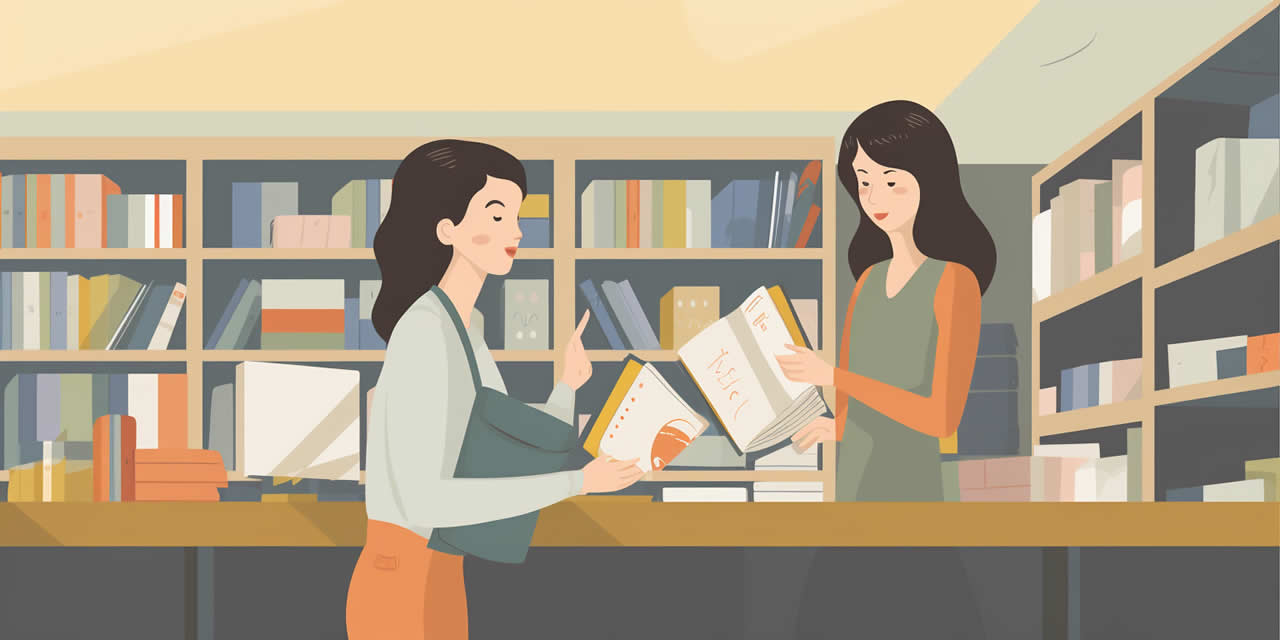Why Are Books So Expensive?
Last Updated: 4 June 2023Written by Chris Beach
Getting More Books For Your Bucks
It's no secret that book lovers often find themselves grappling with the high cost of their favorite literary treasures. As a passionate reader myself, I can't help but wonder: why are books so expensive? The answer lies in a combination of factors that go beyond just the paper and ink we hold in our hands.
In this blog post, we'll delve into the world of publishing to uncover production costs, author royalties, economic influences, and more.

• Getting More Books For Your Bucks
• Understanding The Factors Contributing To High Book Prices
• Production And Distribution Costs
• Author Royalties And Licensing Fees
• Economic Factors
• Returns Policy And Transit Costs
• Solutions To Reduce The Cost Of Books
• Advancements In Technology
• Encouraging Second-Hand Sales
• Government Support
• Balancing Accessibility And Affordability In The Future Of Book Pricing
• Importance Of Reading And Education
• Strategies For Increasing Access To Books
• The End of The Paper Trail
Frequently Asked Questions
• What factors contribute to the high cost of books?
• Can I find cheaper books online?
• Are there any alternatives for obtaining books without spending too much money?
• Do all genres have the same pricing structure when it comes to books?
• Related Posts
Understanding The Factors Contributing To High Book Prices
Book prices are determined by a variety of factors, including production and distribution costs, author royalties and licensing fees, economic factors like inflation and exchange rates, returns policy, transit costs for shipping books to retailers, and more.
Production And Distribution Costs
As a book lover myself, I have often wondered why books can be so expensive, and it turns out that the production and distribution costs play a significant role in determining their price.
For instance, the cost of producing a particular book in color is higher than black and white due to increased ink usage. Also, consider other elements like hardcover books versus the paperback version - generally speaking; hardcovers are more expensive to produce due to sturdier materials being used for durability.
Then there is the process of distributing these books worldwide which adds another layer of expense. The average sized book is quite dense and this adds to the shipping cost. This factor is especially significant when selling books online.
As you can see, even before we account for author royalties or licensing fees, getting books printed and delivered requires considerable resources that impact their retail prices significantly.
Author Royalties And Licensing Fees
One significant factor contributing to high book prices is author royalties and licensing fees. Publishers must pay royalties to authors for the rights to publish their books, typically calculated as a percentage of each sale.
In traditional publishing, royalty rates often fall under 10%, while in self-publishing, authors can see rates up to 70%.
Licensing fees also come into play within the publishing industry. These fees are sums paid to secure permission for using certain content or intellectual property within a published work.
For example, if an author wishes to include song lyrics or excerpts from another book, they may need to secure licenses from copyright holders in order not to violate any copyright laws.
Economic Factors
Economic factors play a significant role in determining the high prices of books, particularly textbooks. As an avid reader and book enthusiast, I've noticed how inflation and other market forces directly impact the publishing industry. Understanding the effects of that economy is crucial to comprehending book pricing.
Moreover, as profit margins remain vital to publishers' survival, they often pass these cost increases onto consumers by raising book prices. Take textbook manufacturers as an example; they make sizeable profits from issuing new editions with only minor updates.
These frequent releases not only keep the information current but also maintain their revenue streams by discouraging used-book sales - which brings us back to the high cost of texts that students face every semester.
Returns Policy And Transit Costs
As a frequent book buyer, I have often wondered why books are so expensive. One of the contributing factors to high book prices is the returns policy that booksellers have in place.
Essentially, when a bookstore orders new titles from publishers and they do not sell as well as anticipated, sellers expect to be reimbursed for the cost of returned books by publishers.
Another factor that often goes unnoticed is transit costs. When you purchase a physical copy of a book online or in-store, you may not realize that there are additional costs involved in getting those books from point A (publisher) to point B (bookseller).
Overall, it's important for publishers and booksellers alike to find ways to reduce these unnecessary expenses so that readers can have access to more affordable reading materials.
Solutions To Reduce The Cost Of Books
One solution to reduce the cost of books is through advancements in technology, such as e-books and print-on-demand. Another way is to encourage second-hand sales or offer government support for libraries and bookstores. Half price books or discount book stores also present an affordable option to book lovers.
Advancements In Technology
In recent years, technology has played a significant role in reducing the cost of books. The introduction of e-books has revolutionized the way people consume literature, making it cheaper and more accessible. It also offers the advantage of saving the physical resources needed to print books.
With advancements in education technology, academic resources have become more affordable compared to traditional textbooks.
The evolution of book production technologies has led to advances such as phototypesetting, xerography, and digital information. These innovations have made printing faster, cheaper and easier than ever before.
Additionally, they have allowed for customization based on demand without high overhead costs when using industrial offset printers.
Encouraging Second-Hand Sales
As prices for new books continue to rise, many readers are turning to secondhand options as a way to save money. From online marketplaces like Amazon and AbeBooks, to local used bookstores, there are plenty of options for finding gently-used copies of your favorite titles at a fraction of the cost.
The booming used-book industry has even created a niche market for collectibles like signed copies or rare Ladybird books. Plus, buying secondhand not only saves you money but also supports local businesses and reduces waste through recycling - making it an eco-friendly option too.
Government Support
As the average price of books continue to rise, government support offers potential solutions for reducing costs. This can include subsidies for book production, tax incentives for publishers and authors, or even consumer subsidies to help make books more affordable.
For example, in some countries, the government pays part of the cost of a book that would otherwise be passed on to the consumer. Additionally, tax-free educational assistance benefits can cover payments for tuition fees and books.
These measures can increase access to literature while also promoting education and knowledge acquisition which are fundamental human needs.

Balancing Accessibility And Affordability In The Future Of Book Pricing
As book prices continue to rise, it's important to consider the balance between accessibility and affordability. To address this issue, advancements in technology can provide more cost-effective options for publishing and distributing books.
Encouraging second-hand sales and government support for libraries can also make books more accessible to those with limited financial resources. Offering a fair price that resonates with the consumer, and pricing your books appropriately is essential. Companies must price consistently and remain price sensitive in the market to stay competitive.
Importance Of Reading And Education
As a reader and lover of books, I firmly believe that reading plays an incredibly important role in education. Whether it's learning a new skill or delving into a whole new world of knowledge, reading is the key to unlocking doors we never even knew existed.
Numerous studies have shown that investing in reading books and school libraries have a significant correlation with increases in student achievement. Since their origins in ancient Greek culture, books play an essential role in education and transmitting the written language.
It's not just about academic performance either - literacy has far-reaching effects on personal growth as well. It sets us up for success in our careers and helps us communicate more effectively with others.
Reading is also known to reduce stress levels and promote empathy towards others by allowing us to understand different perspectives and cultures.
In order for this vision of accessibility to come true though, book pricing needs serious consideration - especially when it comes to educational materials like textbooks.
The psychology of consumption and pricing play significant roles in demand and consumption - if prices are too high, then access will be limited which can result in missed opportunities for knowledge acquisition among learners who may not be able to afford them.
Strategies For Increasing Access To Books
Increasing access to books is important for promoting literacy and education, especially for low-income students. Here are some strategies that can help achieve this:
-
Establishing partnerships between schools and local libraries or bookstores to provide free or discounted books to students.
-
Implementing a digital library system that allows for easy access to books and other educational materials from any device with an internet connection.
-
Encouraging the donation of used books by setting up book drives and drop - off locations in the community.
-
Providing resources for parents and caregivers on how to promote reading at home, such as through read-alouds and trips to the library.
-
Expanding access to e - books, which can be more affordable than print editions and also allow for greater flexibility in terms of loan periods and availability.
-
Increasing funding for public libraries, which serve as important resources for communities in providing access to books and other educational materials.
By implementing these strategies, we can help increase accessibility to books and provide more opportunities for individuals to improve their literacy skills and achieve academic success.
The End of The Paper Trail
Finding a balance between accessibility and affordability in book pricing is crucial for the future of reading and education. One strategy suggested by experts is to use the "good-better-best" approach where books are offered at varying price points based on their level of quality, popularity, and demand.
Additionally, advancements in digital technologies have made it possible to reduce production costs and increase access to e-books. However, government regulation also plays a role in ensuring that prices are fair and that competition thrives in the industry.
Frequently Asked Questions
What factors contribute to the high cost of books?
There are several factors that can contribute to the high and rising cost of getting books published, including distribution costs, the paper, physical resources needed, and author royalties. Publishers also incur marketing expenses to get a book into the public eye.
Can I find cheaper books online?
Yes, online retailers often offer discounts on used or new books that may not be available in traditional brick-and-mortar stores. Additionally, digital e-books can sometimes be purchased at a lower price point than physical copies.
Are there any alternatives for obtaining books without spending too much money?
Yes, libraries are an excellent resource for obtaining free or low-cost access to a wide variety of reading materials. Additionally, many communities host book exchange programs where individuals can swap their own gently-used books with others.
Do all genres have the same pricing structure when it comes to books?
No, pricing structures vary depending on genre and demand for specific titles within those genres. Some best-selling authors command higher prices due to their popularity while other genres such as academic textbooks may require specialized knowledge or extensive research which results in a higher price point to cover associated costs involved in publishing them.
Related Posts
Book fairs are a great place to find books at a cheaper price. Check out our list of amazing book fairs.

Chris Beach
Hi, I'm Chris. My love of books started when I was a child visiting libraries with my Dad. The smell and feel of old pages still sparks something within me that can I can only express as an emotional attachment to books. Two decades later this evolved into a passion for collecting rare books, particularly 17th century early-English literature, and rare children's books. I believe every book has its own story and each one reveals something new about the world we live in.
Read more...
Receive unbeatable book deals in your favorite fiction or non-fiction genres. Our daily emails are packed with new and bestselling authors you will love!
Latest Articles
Why Do I Read So Slow?Should You Listen To Music While Reading A Book?
Are Books Dying?
Why Do Books Have Blank Pages?
Is Reading a Hobby?
Complete Guide to Richard Osman Books in Order
The Best Books About Learning Chess
How Often Should You Read?
The Cork O'Connor Books in Order
Deal-icious Reads: The Best Books Like 'The Deal'
Follow Us